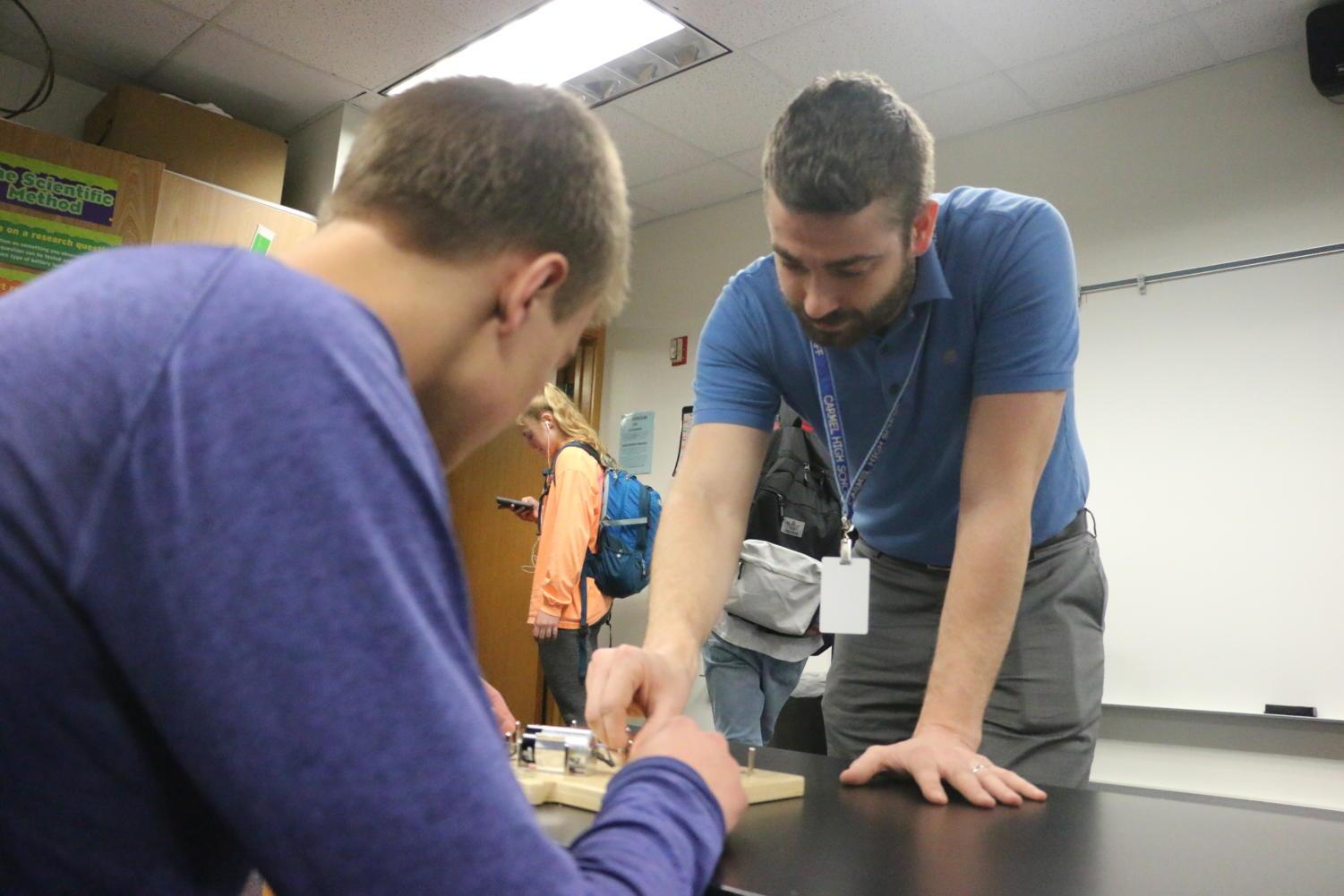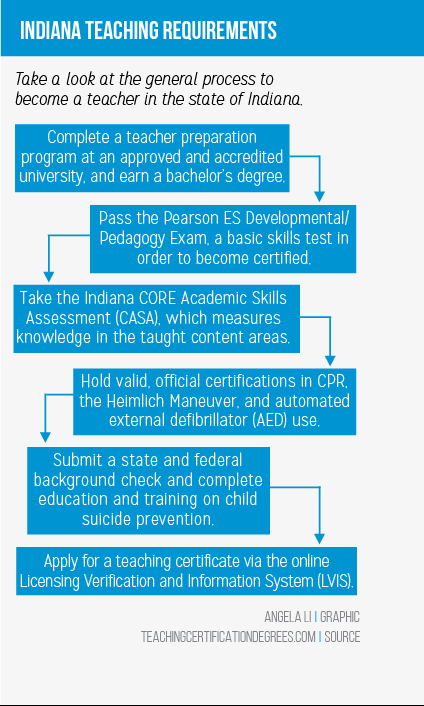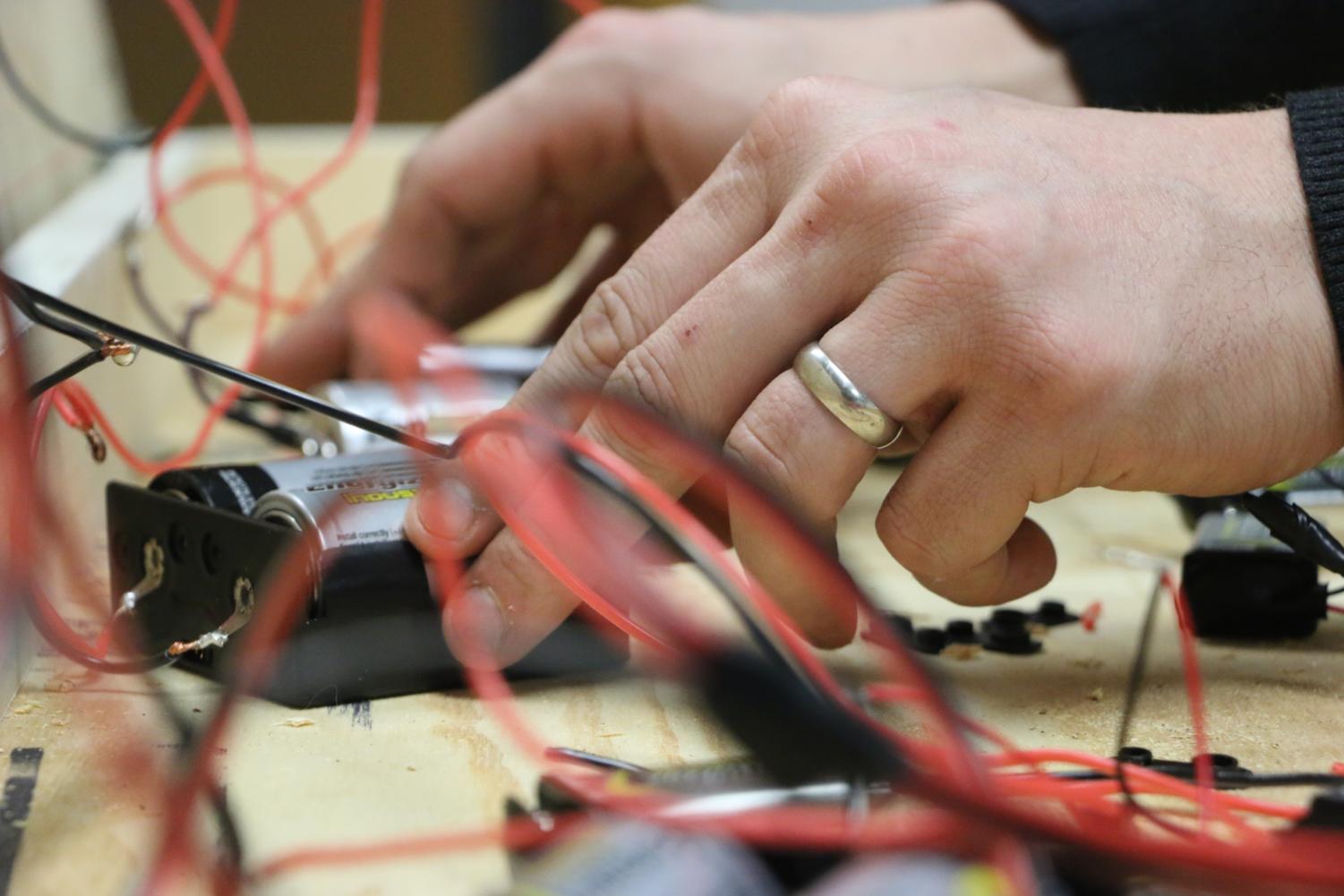Your donation will support the student journalists of Carmel High School - IN. Your contribution will allow us to purchase equipment and cover our annual website hosting costs.
Short on STEM: CHS STEM teachers share thoughts on teaching qualifications as new Senate bill addressing teacher shortage is proposed
April 20, 2018
Last month, Indiana Republican Senators Andy Zay, Dennis Kruse, and Jeff Raatz authored a bill to address the lack of qualified teachers in Indiana. Senate Bill 387 would create a career specialist permit, which allows individuals who have professional experience but have not obtained a teaching license to become teachers, and would also allow schools to raise pay for teachers in science, technology, engineering and math fields or special education.
James Hambley, Integrated Chemistry and Physics teacher, said he is skeptical about the effectiveness of the career specialist permit. He said he first earned his biology and chemistry degrees at Indiana University Southeastern and then earned his master’s degree in education through the Indianapolis Teaching Fellow program. He said while he believes having teachers who are knowledgeable in their content areas is important, the skills learned through a formal education program are also necessary for a career in education.
“The fact that I got my degrees in science before I became a teacher gave me an advantage of knowledge of the content. However, (people, like me, who get their professional degrees before their teaching licenses are ) also at a disadvantage because people who had teaching training are much better at the skills you need to be an effective educator.
“When I entered the classroom—I had a summer program before entering the classroom on training to be an effective educator—I was really envious of other teachers that I saw who had gone through two and four year programs. They had much more knowledge of the different strategies and techniques that would be successful,” he said.

Assistant Principal Joe Schaller said he agrees while having real-world experience is helpful in the classroom, being a teacher is also about communicating with students.
“If you’re a science teacher, it’s not just about knowing science; it’s about getting along with kids, being able to actually teach it. You may know everything about your science class, but if you can’t convey that to your students and get along with students, it’s not going to work,” Schaller said.
On the other hand, Schaller said he believed additional pay would be an incentive for qualified individuals to join the teacher profession, depending on the amount.
“Money’s an incentive for people, and right now a lot of times people who have science degrees or math degrees-they can teach-but there’s a lot of other things they can do with those degrees (as well),” he said.
Hambley said supplemental pay for teachers entering special education and STEM could help to further support teachers.
“I think that most teachers would tell you that they aren’t in the profession for the money. However, some teachers have families and have a lot of expenses,…so I think the financial incentives to staff positions that are hard to fill would help get more individuals the opportunity to fill those,” he said.
Senior Chloe Fickle said she plans to obtain a visual education degree with a teaching license at Ball State University. She said supplemental pay should be considered individually for each teacher.

“I feel like it’s tricky to try and apply that to every single teacher, no matter what their degree or qualifications might be. It kind of depends-you might be a history teacher, but you might not be a great history teacher, even though you might be qualified,” Fickle said.
Hambley said while he believes the bill is the right start, it needs to be more extensive.
“I think this is a small step in the right direction but it needs to be (larger) and not just focused on fields that (schools) can’t find teachers knowledgeable (enough) to teach that content,” he said.
Schaller said showing the benefits of teaching could help draw more interest in education if the provisions in the bill were not enough to get more qualified teachers.
“What would be nice would be if we could share with people the rewards of teaching. If people saw that there was a reward to working with
young people, seeing their success… That would be one thing,” he said.
Fickle said one way to increase the number of people who want to enter education would be for society to change their views on teachers.
She said, “I’m becoming a teacher because I want to make an impact on kids the way my teachers have made an impact on me. We as a society can do a better job in showcasing how teaching is.”
